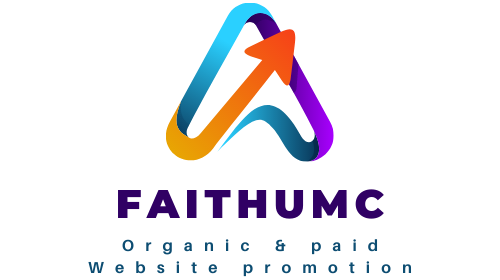
What Is Compliance Management?
Compliance management is all about ensuring your organization adheres to the laws, regulations, standards, and ethical practices relevant to your industry. It involves a set of processes designed to detect, prevent, and correct any deviations from these requirements. Essentially, it's about staying on the right side of the rules and maintaining a good reputation.
In practice, compliance management means implementing policies and procedures that guide your employees' actions and decisions. It also involves regular training to keep everyone updated on the latest regulatory changes and to reinforce the importance of compliance. Monitoring and auditing are crucial parts of this process, helping you identify areas where you might be falling short and taking corrective actions promptly.
A strong compliance management system (CMS) not only helps you avoid legal penalties and fines but also fosters a culture of integrity and accountability within your organization. This system gives you a structured framework to manage risks, ensuring that your operations run smoothly and efficiently. Ultimately, compliance management is about safeguarding your business, building trust with stakeholders, and achieving long-term success by adhering to established norms and standards.
How Do Compliance Management Automation Platforms Work?
Compliance management automation platforms simplify the complex task of staying compliant with various regulations. These platforms, like MetricStream, Vanta, and Drata, provide a comprehensive approach to managing compliance activities, ensuring that your organization meets all required standards efficiently and effectively.
First, these platforms continuously monitor your compliance status. This means they keep an eye on all relevant activities and processes in real-time, ensuring that any deviations or issues are immediately flagged. This proactive approach helps in catching potential compliance problems before they escalate.
Next, automated evidence collection is a key feature. Instead of manually gathering documents and records to prove compliance, these platforms automatically collect and organize the necessary evidence. This not only saves a lot of time but also ensures that the evidence is always up-to-date and easily accessible when needed.
Automated compliance reporting is another significant benefit. The platforms generate reports based on the collected evidence and monitored activities. These reports can be customized to meet specific regulatory requirements, making it easier to present accurate and thorough compliance information to auditors or regulatory bodies.
Lastly, real-time alerts on compliance issues are essential. Whenever a compliance-related issue arises, the platform sends immediate notifications to the relevant stakeholders. This allows for quick action and resolution, minimizing the risk of non-compliance.
By leveraging these features, compliance management automation platforms enable your organization to streamline compliance processes, reduce manual efforts, and maintain a high level of adherence to regulatory requirements.
What Are the Capabilities of Advanced Compliance Tools?
Advanced compliance tools offer a variety of capabilities designed to simplify and enhance the management of compliance processes. These tools are essential in today's complex regulatory environment, providing features that help organizations stay ahead of compliance requirements and mitigate risks effectively.
Continuous Monitoring of Compliance Status
One of the standout features of advanced compliance tools is their ability to continuously monitor the compliance status of an organization. This capability ensures that you are always aware of your compliance standing. By providing real-time insights, these tools can alert you to any potential issues before they become significant problems. This proactive approach allows for timely adjustments and helps maintain a steady compliance trajectory.
Automated Evidence Collection
Collecting evidence to demonstrate compliance can be a time-consuming task. Advanced compliance tools simplify this process through automation. These tools can automatically gather and organize evidence from various sources, ensuring that all necessary documentation is readily available. This not only saves time but also reduces the risk of human error. With automated evidence collection, you can be confident that your compliance records are accurate and up-to-date.
Automated Compliance Reporting
Generating compliance reports is another area where advanced tools excel. These tools can create detailed reports automatically, pulling data from multiple sources to provide a comprehensive view of your compliance status. Automated reporting ensures that reports are consistent and formatted correctly, which is particularly useful during audits. This feature allows you to focus on analyzing the data and making informed decisions rather than spending time on report generation.
Real-time Alerts on Compliance Issues
Keeping track of compliance issues can be challenging, especially in larger organizations. Advanced compliance tools offer real-time alerts that notify you immediately when a compliance issue arises. These alerts can be customized based on your specific needs, ensuring that you are informed about the most critical issues as soon as they occur. This immediate notification system allows for swift action, helping to address compliance gaps quickly and efficiently.
These capabilities are just a few examples of how advanced compliance tools can streamline your compliance management efforts. By leveraging these features, you can manage compliance more effectively, reduce risks, and ensure that your organization meets all regulatory requirements.
Why Is Risk Management Important in Compliance?
Risk management plays a crucial role in compliance because it helps you identify, assess, and mitigate potential issues before they become major problems. By understanding the risks your organization faces, you can create strategies to address them proactively, ensuring that your compliance efforts are both effective and efficient.
One of the main benefits of integrating risk management into your compliance strategy is that it provides a structured approach to dealing with uncertainties. This means you can anticipate potential compliance breaches and take steps to prevent them, rather than reacting after the fact. This proactive stance not only helps you avoid costly fines and legal penalties but also protects your organization's reputation.
Additionally, effective risk management ensures that your compliance processes are aligned with your overall business objectives. By regularly reviewing and updating your risk assessments, you can ensure that your compliance measures remain relevant and effective in the face of changing regulations and business environments. This alignment helps you maintain a balance between meeting regulatory requirements and achieving your strategic goals.
Moreover, incorporating risk management into your compliance framework fosters a culture of accountability and transparency within your organization. When everyone understands the importance of identifying and managing risks, they are more likely to adhere to compliance policies and procedures. This collective effort helps create a robust compliance environment that supports long-term success.
In summary, risk management is vital in compliance because it helps you proactively address potential issues, aligns your compliance efforts with your business goals, and promotes a culture of accountability. By integrating these practices, you can ensure that your organization remains compliant and resilient in an ever-changing regulatory landscape.
How Do These Tools Enable Effective Compliance Management?
When it comes to compliance management, the right tools can make all the difference. Advanced platforms like MetricStream, Vanta, and Drata streamline the entire process, making it easier for your organization to stay on top of regulatory requirements. These tools are designed to automate and integrate various compliance tasks, which significantly reduces the workload on your team and minimizes the risk of human error.
First, let's talk about continuous monitoring of compliance status. These tools provide real-time visibility into your organization's compliance posture. Instead of manually checking every detail, the software constantly scans your operations to ensure everything is in line with the latest regulations. This ongoing monitoring helps you catch potential issues before they become significant problems.
Another crucial feature is automated evidence collection. Gathering the necessary documentation to prove compliance can be a tedious and time-consuming task. Advanced compliance tools automate this process, collecting and organizing evidence as activities occur. This automation not only saves time but also ensures that your documentation is always up-to-date and readily available for audits.
Automated compliance reporting is another significant advantage. Compliance tools generate detailed reports that highlight your compliance status, any issues that need addressing, and the steps taken to resolve them. These reports are invaluable for internal reviews and external audits, providing a clear and concise overview of your compliance efforts.
Real-time alerts on compliance issues are also a game-changer. With these tools, you receive immediate notifications if something goes wrong. Whether it's a missed deadline or a deviation from a required process, you'll know about it right away, allowing you to take swift action to correct the issue.
By incorporating these advanced features, compliance management platforms like ——- not only help you manage compliance more effectively but also reduce risks. The automation and real-time capabilities ensure that you are always aware of your compliance status, and the detailed reporting and evidence collection make it easier to prove your compliance efforts.
In summary, these tools enable your organization to handle compliance more efficiently, giving you peace of mind that you are meeting all regulatory requirements. They reduce the manual effort required, minimize the risk of non-compliance, and provide valuable insights into your compliance processes. By leveraging these advanced tools, you can focus more on your core business activities while ensuring that compliance is managed seamlessly.
Summary of Compliance Management Practices
In summary, effective compliance management practices are essential for any organization aiming to navigate the complexities of regulatory requirements. By leveraging advanced tools like MetricStream, Vanta, and Drata, you can automate key processes such as continuous monitoring, evidence collection, and compliance reporting. These platforms, along with robust risk management systems, help you manage compliance more effectively, reduce associated risks, and ensure adherence to complex regulations. Integrating these tools into your compliance strategy not only enhances operational efficiency but also fosters a culture of accountability and integrity within your organization.
